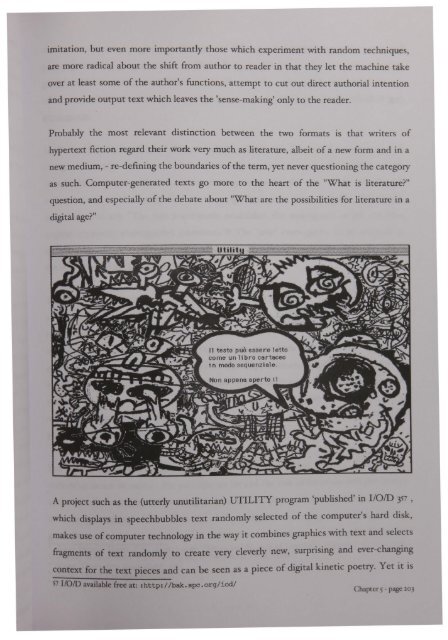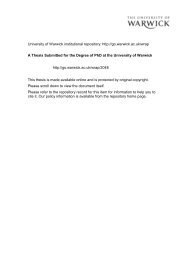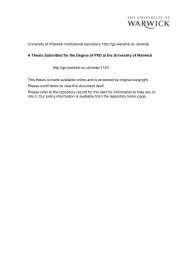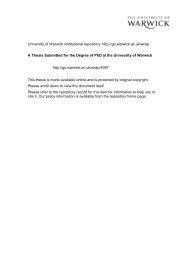From Page to Screen - WRAP: Warwick Research Archive Portal ...
From Page to Screen - WRAP: Warwick Research Archive Portal ...
From Page to Screen - WRAP: Warwick Research Archive Portal ...
Create successful ePaper yourself
Turn your PDF publications into a flip-book with our unique Google optimized e-Paper software.
imitation, but even more importantly those which experiment with random techniques<br />
are more radical about the shift from author <strong>to</strong> reader in that they let the machine take<br />
over at least some of the author's functions, attempt <strong>to</strong> cut out direct authorial intention<br />
and provide output text which leaves the 'sense-making' only <strong>to</strong> the reader.<br />
Probably the most relevant distinction between the two formats is that writers of<br />
hypertext fiction regard their work very much as literature, albeit of a new form and in a<br />
new medium, - re-defining the boundaries ofthe term, yet never questioning the category<br />
as such. Computer-generated texts go more <strong>to</strong> the heart of the "What is literature?"<br />
question, and especially of the debate about "What are the possibilities for literature in a<br />
digital age?"<br />
A project such as the (utterly unutilitarian) UTILITY program 'published' in VOID 3 57 ,<br />
which displays in speechbubbles text randomly selected of the computer's hard disk,<br />
makes use of computer technology in the way it combines graphics with text and selects<br />
fragments of text randomly <strong>to</strong> create very cleverly new, surprising and ever-changing<br />
context for the text pieces and can be seen as a piece of digital kinetic poetry. Yet it is<br />
I/OfD available free at: :http://bak.spc.org/iod/<br />
Chapter S- pag 203





